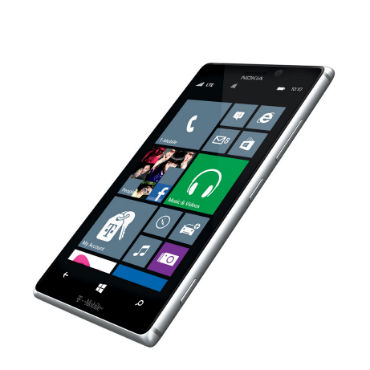What Microsoft-Nokia could mean for federal mobility
The software giant's move was driven by consumer-market competition, but analysts say there are implications for agencies as well.

Microsoft's planned $7.2 billion acquisition of Nokia could help bolster the software giant's position in the federal market, especially when it comes to filling growing demand for mobile computing devices.
The deal will bring Nokia's global phone manufacturing and marketing operation under Microsoft's control, along with patent licenses that include mapping and geospatial tools. While the deal -- the second richest in Microsoft history after its acquisition of Skype -- was driven by competition in the consumer market from Apple and Google-powered Android devices, some of these factors are also at play in the federal space.
The federal government is leaning toward a mobility strategy in which mobile and desktop environments converge. Federal CIO Steven VanRoekel recently said, "We're on the edge of a phenomenon where [mobile and desktop] are the same thing."
And while Microsoft is ubiquitous on federal desktop computers, the field is more wide open when it comes to mobile phones and tablets. If Microsoft wants to build on its existing dominance in desktop operating systems and software in the federal workplace, mobile is the next logical step. If successful, Microsoft could be positioned to improve its position with government agencies. The latest quarterly data from research firm IDC indicates that Windows has inched passed Blackberry to become the third-place mobile operating system, thanks in large part to Nokia devices. However, Windows Phone is not expected to crack even 10 percent of the overall smartphone market until 2017. Microsoft declined to comment specifically for this article.
The question for Microsoft is whether it can use Nokia devices to extend its dominance of the desktop into the mobile environment. Data from Govini, a firm specializing in government contracting analytics, shows Microsoft's Windows operating system on $11.1 billion in contracts since January 2008. In the same time frame, Apple's iOS generated just $575.4 million.
Competition is tighter when it comes to tablets. The federal government has contracted for $304.3 million in Apple iPads since the device launched in April 2010. Contracts for Microsoft-based tablets totaled $532.4 million in the same period.
Microsoft's high-profile entrant into the tablet market, the Surface, has been a bust, with the company taking a $900 million write-down on unsold inventory. Nokia has tablet devices in the offing, according to industry blogs, which put a release date of a new Windows-based tablet in late September. Microsoft is also pushing ahead with its own line of tablets. In its strategic rationale for the deal, Microsoft stated that "success in tablets will help PCs" and that the deal helps Microsoft "take additional steps to promote [an] apps ecosystem for Windows."
From the point of view of the federal market, adding more Windows-powered devices, whether smartphones or tablets, potentially helps Microsoft preserve its desktop dominance and perhaps extend it into mobile devices.
"I think that it was very smart for Microsoft. Handset manufacturers were increasingly going to the Android platform and Microsoft had no control. I think that now with Nokia that they can potentially optimize the experience between the software and the hardware," said Tom Suder, president of Mobilegov. "This could be good for the government that wants to leverage existing investments in Microsoft."
It is one thing to have a plan, however, and quite another to execute it. With the trend toward bring-your-own-device accelerating, Microsoft will have to succeed with consumers in order to realize gains in the federal market, said John Slye, an analyst at Deltek.
"Government generally moves slower than the commercial market, with only pockets leading," Slye said. He noted that Microsoft's lead in desktop operating systems and software could be less relevant in a world that is moving toward interoperable, cloud-based virtual environments. "Much of what's going on in mobility in government will be driven by non-mobility factors. Cost, infrastructure maintenance, standardization, security – those are going to have ripples across mobility," he said.
Slye sees an opportunity in the federal market for Microsoft mobile devices. "They could leverage the applications and software side to make some inroads and pick up some of that market as Blackberry continues to decline," he said. However, much of that slack has already been picked up by Android handsets and iPhones.
Microsoft justified the deal in part because it "cannot risk having Google or Apple foreclose app innovation, integration, distribution, or economics," according to a document explaining the deal. For Microsoft, a lot depends on whether that ship has already sailed.






